Following the introduction of Campus Sustainability 2020, a plan adopted by Lehigh in May 2016, several offices across campus worked together this summer to implement new green initiatives on campus.
In collaboration with the Office of Sustainability, Transportation Services and Parking Services brought both an electric car and bus to campus, and Facility Services brought Bigbelly compacting bins to Farrington Square.
Sustainability program manager Katharine Targett said more plans are in the works across campus. Those involved in introducing the new programs hope that, although expensive, the initiatives offset the cost. If successful, a possible expansion of the programs is in Lehigh’s future.
The electric car, introduced at the end of last semester on Earth Day, is used by Parking Services for parking enforcement. This semester, Transportation Services is releasing its new electric bus on Sept. 22, during Car Free Day.
“Transportation Services is always looking for ways to improve our carbon footprint and it’s something that we’ve looked at for some time, along with compressed natural gas (CNG), electric hybrids, things like that,” manager Bob Bruneio said. “Our carbon footprint is most important, so we’re always looking.”
At last year’s BusCon, a transportation tradeshow in Indianapolis, Transportation Services was introduced to BYD, an electric bus company out of California. In partnership with them, Lehigh is the first school on the East Coast to use a BYD electric bus. The bus arrived on campus several weeks ago, but members of Transportation Services are waiting to roll it out until they are sure the bus is up to their standards.
The bus is 30 feet long and has a capacity of 40 people. Once it is in circulation, the bus will travel the Mountaintop Express route from about 7 a.m. to 2 p.m. daily. In the afternoons, the bus will recharge for about three hours on Mountaintop and then return to campus in the evenings as a nightly activity shuttle to bring students to events such as sports games.
Facility Services also introduced the new Bigbelly compacting bins to Farrington Square under a one-year lease in August. Targett said Farrington Square was chosen because it is a high-traffic, high-use area where the bins’ effectiveness can easily be tracked.
“If we’re happy with the program, then we’ll extend them to long-term,” Facility Services director Gary Falasca said. “We may also put them around other spots on campus.”
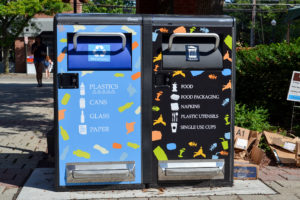
New trash cans and recycling bins in Farrington Square encourage students to separate trash from recycling. The bins were installed during the summer of 2017. (Alexis McGowan/B&W Staff)
The Bigbelly bins are solar-powered compactors. As the trash builds up, sensors run by the solar cells triggers the compactor, which pushes the trash down and creates more room. The bins take longer than open-topped containers to fill up, which means that custodians only have to empty them about once a day instead of three or four times a day. Fewer trips taken to empty trash equal fewer greenhouse gas emissions.
The bins are connected to an app and desktop website that allow Falasca and the custodians to see how full the bins are. With this, the custodians do not need to physically check the fullness of the bins but can just check it on their phones.
“You can track its efficiency and how much material is collected over any period of time,” Falasca said. “If we find that this is doing what we think it is by cutting down on truck trips and labor, that is a win for us.”
There are also advertising opportunities on the outside of the bins, where students can slide in posters publicizing their student groups or events. Students can print their posters with Printing and Mailing Services and keep it on the bins for about a month.
The biggest problem that Facility Services and the Office of Sustainability are noticing is that students often throw their cardboard boxes or plastic package filling into the compactor bins once they exit the mail center, which can get stuck in the trash bin.
A large box has been placed outside the mail center specifically for cardboard boxes, but Ava Scally, ’20, is working to develop a more permanent and appealing system for the boxes and other items that come out of the mail center.
“I was really annoyed every time that I went to the mail center and the trash bins were overflowing with cardboard,” Scally said. “I thought that there should be a dedicated cardboard bin for the mail center.”
Scally received a Green Fund grant in 2016 and has since been working to build a recycling area for broken down cardboard and other miscellaneous items, as well as a spot for boxes that students haven’t broken down and could be reused when mailing out a package.
In addition to these two newly introduced initiatives, the Office of Sustainability continues to work with groups and individuals across campus, especially those within the residence halls and Greek houses, to educate the Lehigh community on how to live more sustainably. Targett said the office has seen progress as a result of their efforts.
“We’re finding that more people are familiar and understanding and aware of a lot of things that are happening in our realm,” Targett said. “We’re going to keep promoting our ideas and try additional channels of education as we come up with them.”

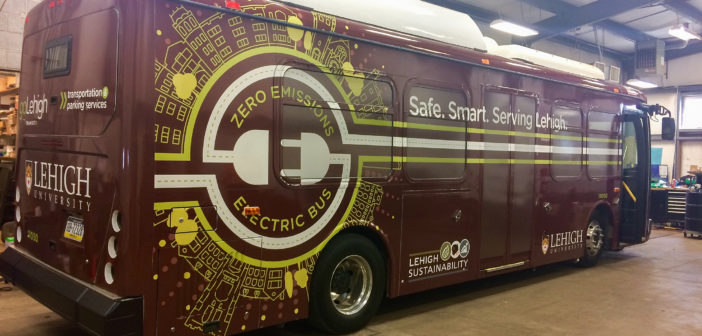

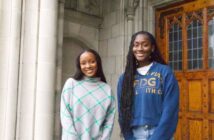
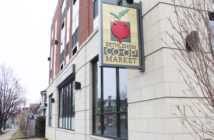
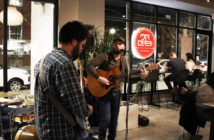
Comment policy
Comments posted to The Brown and White website are reviewed by a moderator before being approved. Incendiary speech or harassing language, including comments targeted at individuals, may be deemed unacceptable and not published. Spam and other soliciting will also be declined.
The Brown and White also reserves the right to not publish entirely anonymous comments.